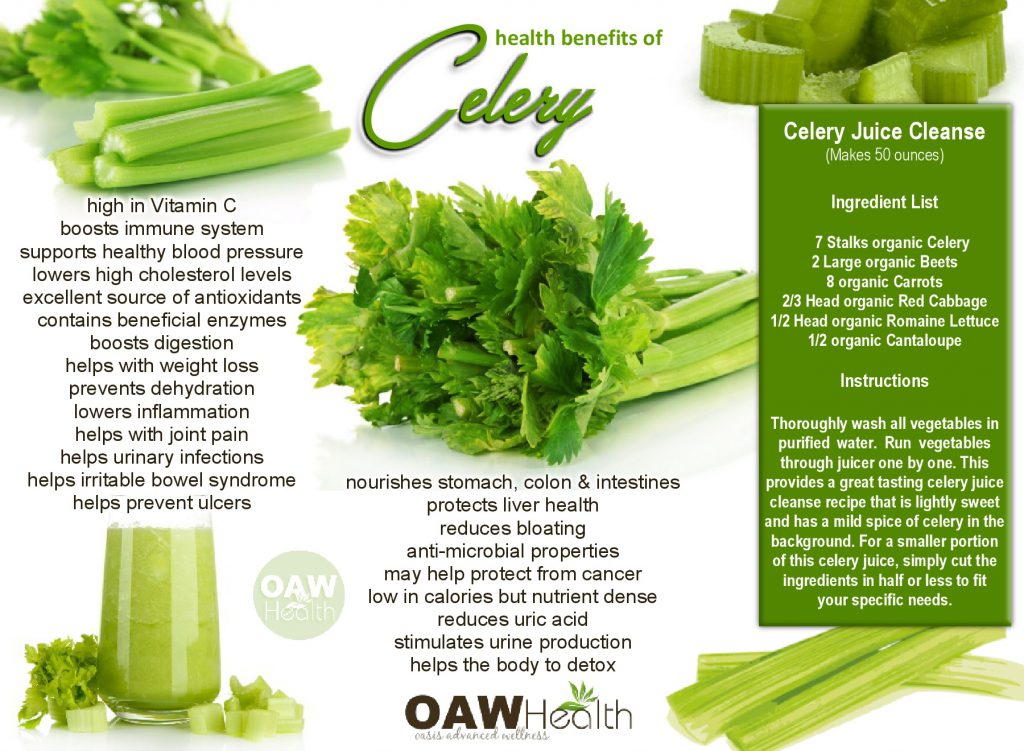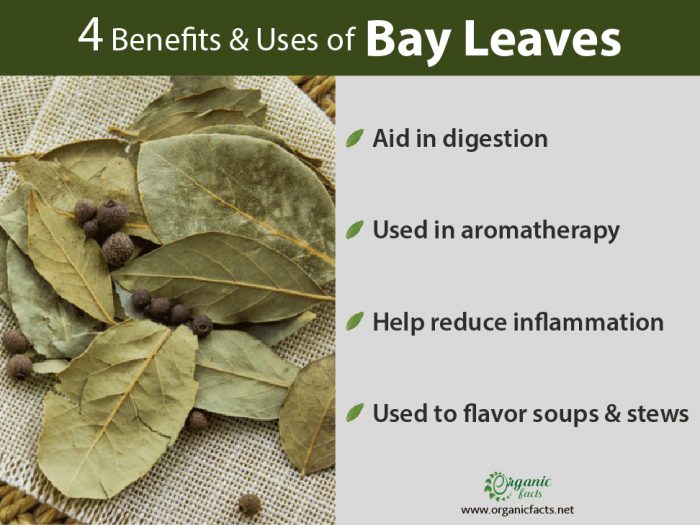Soothe Your Gut: How Celery Aids Digestion and Reduces Bloating – A Journey to Inner Harmony
In the symphony of human health, few instruments are as crucial, yet as frequently out of tune, as the digestive system. For countless individuals, the daily rhythm is disrupted by a persistent drumbeat of discomfort: the gnawing ache of indigestion, the distended silence of bloating, or the erratic tempo of an unpredictable gut. We search for grand solutions, complex protocols, and exotic superfoods, often overlooking the unassuming heroes cultivated in our very own gardens. Among these, the humble celery stalk emerges as a powerful, yet understated, maestro for digestive harmony.
This isn’t merely a tale of a vegetable; it’s a narrative of reclamation – reclaiming comfort, vitality, and the quiet confidence of a well-functioning gut. Join us as we delve into the verdant depths of celery’s profound impact, unraveling its ancient wisdom and modern scientific validation, demonstrating how this crisp, green sentinel can be your ally in the eternal quest for digestive peace and freedom from the tyranny of bloating.
Part 1: The Digestive Predicament – Understanding the Unrest
Before we can fully appreciate celery’s remedial prowess, it’s essential to understand the landscape of digestive distress. Our digestive system, stretching from mouth to anus, is a marvel of biological engineering, responsible for breaking down food, absorbing nutrients, and eliminating waste. When this intricate process falters, a cascade of uncomfortable symptoms can ensue.
Bloating: The Pervasive Puffiness
Perhaps no symptom is as universally recognized and loathed as bloating. It’s that sensation of fullness, tightness, or distension in the abdomen, often accompanied by visible swelling. While occasionally a benign response to a large meal, chronic bloating can be debilitating, affecting body image, comfort, and even mental well-being. Its causes are multifaceted:
- Excess Gas: The most common culprit. This can be due to swallowing air (eating too fast, chewing gum), or the fermentation of undigested food by gut bacteria.
- Fluid Retention: Hormonal fluctuations, high sodium intake, or certain medical conditions can lead to the body holding onto excess water, contributing to a feeling of puffiness, particularly in the abdomen.
- Constipation: When waste products linger in the colon, they can cause distension and discomfort.
- Food Intolerances/Sensitivities: Lactose, gluten, and certain FODMAPs (Fermentable Oligosaccharides, Disaccharides, Monosaccharides, and Polyols) can trigger gas and bloating in sensitive individuals.
- Imbalances in the Gut Microbiome: An overgrowth of certain bacteria or an imbalance between beneficial and harmful microbes can lead to excessive gas production.
- Inflammation: Conditions like Irritable Bowel Syndrome (IBS) or Inflammatory Bowel Disease (IBD) involve chronic inflammation of the gut lining, which can manifest as bloating, pain, and altered bowel habits.
- Stress: The gut-brain axis is powerful. Stress can alter gut motility, increase sensitivity to pain, and even shift the composition of the gut microbiome, all contributing to digestive woes.
Modern life, with its fast pace, processed foods, chronic stress, and environmental toxins, places an unprecedented burden on our digestive systems. We often find ourselves caught in a cycle of discomfort, seeking quick fixes that rarely address the root cause. This is where the wisdom of nature, embodied in a simple stalk of celery, offers a refreshing perspective.
Part 2: Unveiling Celery’s Inner Wisdom – A Nutritional Symphony
At first glance, celery appears unassuming – mostly water, fibrous strings, and a distinct, slightly peppery taste. Yet, beneath this humble exterior lies a complex nutritional profile that orchestrates a symphony of digestive support. It’s far more than just "negative calories"; it’s a powerhouse of hydration, fiber, vitamins, minerals, and an astonishing array of phytonutrients, each playing a crucial role in gut wellness.
1. Hydration: The Foundation of Flow
Celery is approximately 95% water. This isn’t just passive moisture; it’s active hydration, essential for virtually every bodily function, particularly digestion. Adequate water intake is paramount for:
- Softening Stool: Preventing constipation, which is a major contributor to bloating and discomfort. Well-hydrated stool passes more easily through the colon.
- Maintaining Mucosal Integrity: The lining of the digestive tract, known as the mucosa, requires constant hydration to remain robust and function as a protective barrier against harmful substances.
- Nutrient Transport: Water acts as a solvent, aiding in the dissolution and absorption of nutrients into the bloodstream.
2. Fiber: The Unsung Hero
Celery is an excellent source of dietary fiber, a non-digestible carbohydrate crucial for gut health. It contains both soluble and insoluble fiber, each with distinct, yet complementary, roles:
- Insoluble Fiber: This type of fiber acts like a broom, sweeping through the digestive tract. It adds bulk to stool, which stimulates bowel movements and helps prevent constipation. By increasing stool transit time, it reduces the opportunity for excessive gas fermentation and the accumulation of waste products that contribute to bloating.
- Soluble Fiber: This fiber dissolves in water to form a gel-like substance. This gel slows down digestion, helping to regulate blood sugar levels. More importantly for gut health, soluble fiber acts as a prebiotic, meaning it feeds the beneficial bacteria in your gut microbiome. These friendly microbes ferment soluble fiber, producing beneficial compounds called short-chain fatty acids (SCFAs), such as butyrate, propionate, and acetate. SCFAs are vital for gut health: they nourish the cells lining the colon, reduce inflammation, and may even play a role in regulating appetite and metabolism.
3. Vitamins & Minerals: Key Players in Gut Function
Beyond water and fiber, celery delivers a respectable dose of essential micronutrients:
- Vitamin K: Crucial for blood clotting and bone health, but also plays a role in gut health by supporting the production of proteins involved in intestinal barrier function.
- Vitamin A (as beta-carotene): A powerful antioxidant that supports immune function and the integrity of mucous membranes, including those lining the digestive tract.
- Vitamin C: Another potent antioxidant that protects gut cells from oxidative stress and supports immune health.
- Folate (Vitamin B9): Essential for cell growth and repair, including the rapid turnover of cells lining the digestive tract.
- Potassium: An electrolyte vital for fluid balance, nerve signaling, and muscle contractions, including the smooth muscles of the digestive tract that propel food through the system. Its role in fluid balance is particularly relevant to reducing water retention-related bloating.
4. Phytonutrients: The True Powerhouses
This is where celery truly shines. It’s rich in a diverse array of bioactive plant compounds, or phytonutrients, that exert powerful therapeutic effects on the gut:
- Phthalides: Specific to celery, compounds like 3-n-butylphthalide (NBP) give celery its characteristic aroma and have been studied for their potential to relax smooth muscles, including those in the gut. This can help alleviate spasms and promote smoother digestive transit.
- Flavonoids: Celery is abundant in flavonoids like apigenin and luteolin. These are potent antioxidants and anti-inflammatory agents. In the gut, they help calm inflammation, which is a significant underlying factor in conditions like IBS and IBD, and can directly reduce bloating and discomfort caused by an agitated digestive system.
- Phenolic Acids: Such as caffeic acid and ferulic acid, also contribute to celery’s antioxidant and anti-inflammatory profile, protecting gut cells from damage.
- Polysaccharides: Certain complex carbohydrates in celery act as prebiotics and contribute to its anti-inflammatory effects.
The synergistic action of these components transforms celery from a simple vegetable into a sophisticated digestive aid, addressing multiple facets of gut dysfunction simultaneously.
Part 3: The Mechanisms of Soothing – How Celery Works Its Magic
Now that we’ve explored celery’s rich composition, let’s delve into the specific mechanisms by which it actively soothes the gut, promotes efficient digestion, and robustly tackles bloating.
1. Lubricating and Expediting Transit through Hydration and Insoluble Fiber:
The high water content in celery, combined with its insoluble fiber, is a dynamic duo against constipation. The water softens stool, making it easier to pass, while insoluble fiber adds bulk, stimulating the peristaltic action of the intestinal muscles. This efficient movement ensures that waste products don’t linger, ferment excessively, and contribute to gas and bloating. Think of it as gently flushing the system, preventing blockages and promoting a healthy flow.
2. Nurturing the Microbiome and Reducing Inflammation via Soluble Fiber and Phytonutrients:
The soluble fiber in celery is a feast for your beneficial gut bacteria. As these microbes ferment the fiber, they produce SCFAs, particularly butyrate. Butyrate is a primary fuel source for the cells lining the colon (colonocytes) and possesses potent anti-inflammatory properties. This directly translates to a calmer gut environment, reducing the chronic, low-grade inflammation often associated with digestive discomfort, IBS, and even conditions like leaky gut.
Simultaneously, celery’s rich array of anti-inflammatory phytonutrients – notably apigenin, luteolin, and the phthalides – work directly to quell inflammation in the gut lining. These compounds modulate inflammatory pathways, reducing the production of pro-inflammatory cytokines. An inflamed gut is often a painful and bloated gut, so by actively reducing inflammation, celery helps restore comfort and function. This dual action of feeding beneficial bacteria (prebiotic effect) and directly reducing inflammation creates an optimal environment for digestive healing.
3. Diuretic Effect for Water Retention-Related Bloating:
Celery’s high water content, coupled with its potassium levels, gives it a mild natural diuretic effect. This means it helps the body excrete excess sodium and water, reducing fluid retention. Many people experience bloating not just from gas, but also from generalized water retention, particularly around the abdomen. By promoting healthy urination, celery can help shed this excess fluid, leading to a noticeable reduction in that "puffy" feeling. It’s a gentle, natural way to de-bloat.
4. Alkalizing Properties for pH Balance:
While the body maintains a tightly regulated pH balance, the foods we consume can influence the acidity or alkalinity of our internal environment. Celery is considered an alkaline-forming food. An overly acidic internal environment, sometimes exacerbated by diets high in processed foods, sugar, and animal proteins, can stress the digestive system. Incorporating alkaline foods like celery can help balance the body’s pH, potentially soothing an irritated gut and reducing symptoms like acid reflux or heartburn, which can sometimes be mistaken for or contribute to upper abdominal bloating.
5. Antioxidant Shield Against Oxidative Stress:
Our gut cells are constantly exposed to various stressors, including environmental toxins, processed food components, and metabolic byproducts. This can lead to oxidative stress, a state where there’s an imbalance between free radicals and antioxidants, causing cellular damage. Celery’s wealth of antioxidants – Vitamin C, beta-carotene, flavonoids, and phenolic acids – acts as a protective shield. They neutralize free radicals, safeguarding the integrity of the gut lining and supporting its regenerative capacity. A healthy, protected gut lining is less prone to inflammation and dysfunction, thus reducing the likelihood of bloating and discomfort.
6. Muscle Relaxation and Spasm Reduction:
The phthalides in celery, such as 3-n-butylphthalide (NBP), have been shown to have muscle-relaxing properties. The smooth muscles of the digestive tract are responsible for peristalsis, the wave-like contractions that move food along. When these muscles become spastic or overly contracted, it can lead to cramping, pain, and a feeling of trapped gas and bloating. By gently relaxing these muscles, celery can help alleviate spasms, promote smoother transit, and reduce the discomfort associated with an overactive or irritated bowel.
In essence, celery doesn’t just address one aspect of digestive distress; it offers a comprehensive, multi-pronged approach. It hydrates, cleanses, nourishes, calms, and protects, working synergistically to bring the gut back into a state of balanced functionality.
Part 4: A Timeless Remedy – Celery Through the Ages
The therapeutic value of celery is not a recent discovery. Its journey from ancient gardens to modern kitchens is steeped in traditional wisdom, often preceding scientific validation by centuries.
In Ancient Greece and Rome, celery was not primarily a food item but revered for its medicinal properties. It was used as an aphrodisiac, a tonic, and a diuretic. Roman natural historian Pliny the Elder documented its use for kidney ailments and to reduce fluid retention – a testament to its long-recognized diuretic effect that we now understand helps with bloating. Wreaths of celery adorned the victors of the Nemean Games, symbolizing triumph and vitality, hinting at its perceived health-giving powers.
Traditional Chinese Medicine (TCM) has long utilized celery, or qin cai, for its cooling and blood-pressure-lowering properties. It was also prescribed to clear heat, promote diuresis, and alleviate digestive stagnation – concepts that align remarkably with its modern understanding as an anti-inflammatory and digestive aid.
In Ayurvedic medicine, the ancient Indian system of healing, celery is considered balancing for certain doshas and used for its detoxifying and anti-inflammatory qualities. It was often incorporated into preparations to aid digestion and alleviate conditions related to excess pitta (fire element), which can manifest as inflammation and acidity.
These historical accounts underscore a recurring theme: celery as a cleanser, a balancer, and a soothing agent for the body’s internal systems. What our ancestors intuitively understood, modern science is now meticulously dissecting and confirming. Research continues to explore the intricate mechanisms of its phytonutrients, cementing celery’s place as a potent, evidence-backed functional food. The wisdom of the ages, combined with contemporary understanding, makes a compelling case for its inclusion in any gut-healing protocol.
Part 5: Practical Pathways to Digestive Peace – Incorporating Celery
Integrating celery into your daily routine is refreshingly simple, offering diverse ways to harness its digestive benefits. The key is consistency and choosing the form that best suits your lifestyle and preferences.
1. The Whole Stalk: Crunch Your Way to Wellness
Eating whole celery stalks is arguably the most straightforward and beneficial method, as it ensures you consume all the fiber (both soluble and insoluble) that is crucial for gut health.
- Snack: Keep washed, chopped celery in the fridge for a quick, hydrating, and satisfying snack. Pair it with hummus, almond butter, or a healthy dip for added nutrients.
- Salads: Chop celery finely and add it to any salad for extra crunch, flavor, and fiber. Its crisp texture complements leafy greens beautifully.
- Soups and Stews: Celery is a foundational aromatic in many cuisines. Sautéed as part of a mirepoix (celery, carrots, onions), it infuses soups, stews, and casseroles with flavor while boosting their nutritional content.
- Stir-fries: Add sliced celery to stir-fries for a refreshing crunch and a dose of gut-friendly nutrients.
-
Juicing (The Celery Juice Phenomenon):
The trend of drinking straight celery juice on an empty stomach has gained immense popularity, largely due to anecdotal reports of profound digestive and overall health benefits. While some purists advocate for specific protocols, the scientific rationale behind celery juice is compelling:- Concentrated Nutrients: Juicing removes the insoluble fiber, delivering a concentrated dose of water, soluble fiber, vitamins, minerals, and phytonutrients directly into your system for rapid absorption.
- Hydration Boost: A significant surge of electrolytes and structured water can quickly rehydrate and support cellular function.
- Anti-inflammatory Kick: The rapid absorption of compounds like apigenin and luteolin can provide an immediate anti-inflammatory effect, soothing an irritated gut.
- Gentle Detox: The diuretic properties are enhanced, aiding the body in flushing toxins and excess fluids more efficiently.
Considerations for Juicing:
- Fiber Loss: While beneficial for rapid absorption, you lose the insoluble fiber, which is vital for bowel regularity. If you juice, ensure you get ample insoluble fiber from other sources throughout your day.
- Pesticide Residues: Celery is consistently on the "Dirty Dozen" list, meaning it’s one of the crops most likely to contain pesticide residues. If juicing, investing in organic celery is highly recommended to minimize chemical intake, especially given the concentrated nature of juice.
- Start Slow: For some sensitive individuals, a large amount of celery juice might initially cause loose stools or increased gas due to its cleansing effect. Start with a smaller amount (e.g., 4-8 ounces) and gradually increase.
2. Culinary Versatility: Beyond the Stalk
- Smoothies: Blend celery into your morning smoothies for a nutritional boost. Its flavor is easily masked by fruits like apple or pineapple.
- Dips and Spreads: Incorporate finely diced celery into chicken salad, tuna salad, or even homemade salsas for added texture and freshness.
- Celery Seeds: Celery seeds are also used as a spice and, in concentrated extract form, in supplements. They contain many of the same beneficial compounds as the stalk, often in higher concentrations. Celery seed extract is particularly noted for its anti-inflammatory and diuretic properties, but always prioritize whole food sources first.
Tips for Selection and Preparation:
- Choose Fresh: Look for firm, crisp stalks with vibrant green leaves. Avoid limp or discolored celery.
- Wash Thoroughly: Even organic celery should be washed well under running water to remove any dirt or surface contaminants.
- Storage: Store celery in the refrigerator, ideally wrapped in foil or submerged in water, to maintain its crispness for longer.
Addressing Potential Considerations:
- FODMAPs: While generally well-tolerated, celery contains mannitol, a type of polyol that is a FODMAP. For individuals with very severe IBS who are strictly adhering to a low-FODMAP diet, large quantities of celery might trigger symptoms. However, most people find celery beneficial, and its overall anti-inflammatory and gut-supportive properties often outweigh this potential concern. Always listen to your body.
- Allergies: Celery can be an allergen for some individuals, particularly those sensitive to birch pollen. Symptoms can range from oral allergy syndrome to more severe reactions. If you have known allergies, exercise caution.
Part 6: Beyond the Gut – A Holistic Perspective
While our focus has been squarely on celery’s profound digestive benefits, it’s worth briefly acknowledging that its health-promoting properties extend far beyond the gut, reinforcing its status as a true superfood.
- Blood Pressure Regulation: The phthalides in celery have been linked to helping relax the smooth muscles around blood vessels, promoting healthy blood flow and potentially contributing to lower blood pressure.
- Anticancer Properties: Research into celery’s phytonutrients, particularly apigenin and luteolin, suggests they may possess anticancer properties by inhibiting cancer cell growth and inducing apoptosis (programmed cell death).
- Bone Health: Vitamin K is crucial for bone mineralization and density, and celery provides a good source of this essential vitamin.
- Cholesterol Management: The fiber in celery can help bind to cholesterol in the digestive tract, facilitating its excretion and potentially contributing to healthier cholesterol levels.
- Antioxidant Powerhouse: The cumulative effect of its many antioxidants helps combat oxidative stress throughout the body, protecting cells and tissues from damage and contributing to overall longevity and disease prevention.
These broader benefits highlight that incorporating celery into your diet is not just about addressing a specific digestive issue; it’s about making a holistic investment in your overall health and well-being. It underscores the interconnectedness of bodily systems – a healthy gut often translates to a healthier body, mind, and spirit.
However, it’s crucial to remember that celery, powerful as it is, is one piece of a larger wellness puzzle. Optimal digestive health and freedom from bloating are best achieved through a holistic approach that includes:
- Balanced, Whole-Food Diet: Emphasizing fruits, vegetables, lean proteins, and healthy fats.
- Adequate Hydration: Beyond celery, consistent water intake is paramount.
- Stress Management: Techniques like mindfulness, meditation, yoga, or spending time in nature can profoundly impact the gut-brain axis.
- Regular Physical Activity: Exercise aids digestion, reduces stress, and promotes overall well-being.
- Sufficient Sleep: Allowing the body to rest and repair is crucial for all bodily functions, including digestion.
Celery acts as a natural enhancer and supporter within this broader framework, amplifying the positive effects of healthy lifestyle choices.
Conclusion: Embracing Nature’s Simple Elegance for Gut Harmony
The journey to digestive peace can often feel arduous, a relentless search for solutions in a world brimming with complex advice and fleeting trends. Yet, sometimes, the most profound answers lie hidden in plain sight, in the simple elegance of nature’s offerings. Celery, the unassuming green stalk, stands as a testament to this truth.
From its exceptional hydrating power and dual-action fiber to its symphony of anti-inflammatory and antioxidant phytonutrients, celery is a masterful orchestrator of gut health. It tackles bloating by addressing its root causes: promoting regularity, reducing inflammation, balancing fluid levels, and nurturing the delicate ecosystem of the gut microbiome. It’s a centuries-old remedy, now validated by modern science, offering a gentle yet potent path to comfort.
Embracing celery is more than just adding a vegetable to your plate; it’s an act of conscious self-care, a commitment to listening to your body and providing it with the foundational support it needs to thrive. Whether you choose to crunch on its crisp stalks, sip its vibrant juice, or incorporate it into your culinary creations, celery offers an accessible and powerful tool in your arsenal against digestive distress.
Let the story of celery be an invitation – an invitation to soothe your gut, reduce bloating, and rediscover the quiet harmony of a well-nourished, balanced digestive system. In its simple green form, it holds the promise of greater comfort, vitality, and a deeper connection to the natural wisdom that guides our well-being.







